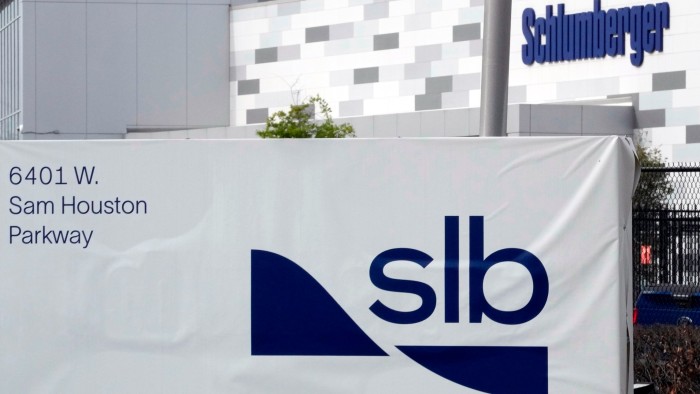Unlock the White House Watch newsletter for free
Your guide to what the 2024 US election means for Washington and the world
Oilfield services company SLB is facing growing pressure from US lawmakers to pull out of Russia following the imposition of sweeping new sanctions against the nation’s energy sector by the Biden administration.
Two US congressmen told the Financial Times the company, better known as Schlumberger, should get out of Russia or risk breaching US sanctions.
Lloyd Doggett and Jake Auchincloss issued the warning following an order published by the Biden administration on Friday, prohibiting the provision of US petroleum services to persons located in Russia from February 27.
SLB is one of only a handful of US-based oil services companies continuing to operate in Russia following Moscow’s full-scale invasion of Ukraine in February 2022. Its two biggest western rivals Baker Hughes and Halliburton sold their Russian operations to local managers in 2022.
A Financial Times investigation last year found that SLB had signed new contracts, advertised for more than 1,000 jobs and imported equipment into Russia since its competitors had exited the country.
SLB did not reply to a request for comment on the new restrictions. On its website, it said it takes responsibility for export controls and sanctions compliance seriously. “We have committed significant resources across the company to ensure we meet or exceed the various international laws,” SLB said.
The Treasury determination did not specifically name Houston-based SLB or its Russian-based subsidiary. But both congressmen and legal experts said the order increased the risk of legal problems facing SLB if it maintained its presence in Russia.
“Any reasonable interpretation of Treasury’s new guidance that ‘cuts off access to US services related to the extraction of crude oil’ would mean getting US oilfield services companies out of Russia,” said Doggett, a Democratic member of Congress for Texas.
When asked if SLB and any other US-based oilfields services companies would have to exit Russia to comply with the order, a Treasury spokeswoman said: “The prohibition on petroleum services prohibits all US persons, wherever located, from providing petroleum services, directly or indirectly, to any person located in the Russian Federation.”
In October a bipartisan group of more than 50 members of congress wrote to the Biden administration demanding tougher sanctions on US-based oilfield services companies operating in Russia, alleging SLB’s work in the country was fuelling President Vladimir Putin’s war machine.
Oilfield services providers carry out much of the grunt work for the global oil and gas industry — everything from building roads and laying pipes to drilling wells and pumping crude. They also provide access to sophisticated technologies that are vital to support exploration and development of complex drilling operations.
Until now western policymakers have avoided imposing comprehensive sanctions on oilfield services in Russia over concerns it would choke off fossil fuel exports and cause a jump in global oil prices. But the Biden administration said last week that oil markets were now expected to be oversupplied in 2025 and the new sanctions would “substantially increase” the risks associated with the Russian oil trade.
Jeremy Paner, a partner at law firm Hughes Hubbard & Reed, said the Biden administration’s new measures meant provision of oilfield services in Russia were now “prohibited and sanctionable under US law”.
“The US sanctions risk exposure arising from SLB Russia’s operations could not be higher at this point,” he said.
Craig Kennedy, a Russia analyst affiliated with Harvard’s Davis Center, said the new Treasury sanctions appeared aimed at SLB and they would skirt it at their peril. If SLB was forced to pull out of Russia it would “rattle the Kremlin” due to the increased cost it would impose on the country’s oil sector, he said.
“Russia has relied heavily on state of the art western reservoir modelling technology to design efficient, low-cost development plans. It’s something they’ve struggled to replicate, and won’t find elsewhere. Now, for the first time in 30 years, they’ll be on their own,” said Kennedy.
SLB has run foul of US sanctions before. In 2015, the company pleaded guilty to a federal charge and paid $232.7mn for facilitating trade with Iran and Sudan.
Additional reporting by Chris Cook in London
Source link









